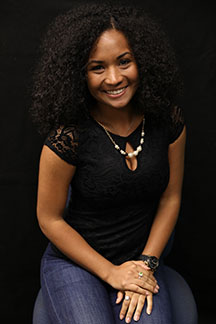As women, we can no longer say our piece and move on. Injustice and inequality will continue whether we are paying attention to it or not. We shouldn’t hang up our signs and quiet our voices until women’s rights are no longer threatened.
On Jan. 21, millions of people worldwide marched, protested and stood together for equality and for women’s rights. The mobilization and passion of so many was amazing after a bitter, whirlwind presidential election.
Soon, the hashtag #shepersisted raced through social media after Elizabeth Warren was prevented from speaking on the Senate floor during the rest of Jeff Sessions’ nomination to be the 84th attorney general of the United States. The hashtag brought attention to the women across the world fighting to have their voices heard.
We marched, and we spoke — now what?
Chimamanda Ngozi Adichie, a Nigerian writer and lecturer featured on TED Talks, gave her definition of feminism in her TED Talk titled “We should all be feminists.” Anyone who has heard Beyoncè’s song “Flawless” has heard a part of Adichie’s TED Talk where Adichie defines feminism.
“Feminist: a person who believes in the social, political and economic equality of the sexes,” Adichie said.
The word feminism stirs up years of emotions passed down through different cultures and generations to the struggles that we are in now. Feminism inspires movements and incites fear in those afraid of women’s voice becoming stronger. We should be inspired to mobilize, not to hate. We should be fearful for the next social group whose rights could be infringed upon, not fearful of the group fighting for equality.
These misconceptions about feminism are why the movement shouldn’t stand still after a day of marching or protesting. The issues are alive, and so are we. Inequality won’t stop so we shouldn’t either.
Former President Barack Obama said, “A change is brought about because ordinary people do extraordinary things.”
The critically acclaimed movie “Hidden Figures” came out in December 2016 and took on the figurative and literal meaning of its title. Three extraordinary black women were the brains behind one of NASA’s greatest operations in history that launched astronaut John Glenn into orbit.
“Their dark skin, their gender, their economic status — none of those were acceptable excuses for not giving the fullest rein to their imaginations and ambitions,” said Margot Lee Shetterly, author of “Hidden Figures.”
How many other women whose names have slipped from the pages of our textbooks have made contributions to our world? We need to ask these important questions that continue the feminist movement. It begins in the classroom and in the textbooks.
A notable sign from the Women’s March in D.C. that, along with other memorable signs, geared up some social media attention said, “Can’t believe we still have to protest this s—.”
Why, after decades of protesting, must we walk the streets in mass numbers for our voices to rise to the ears of our nation’s leaders? It is a social problem that hinders progress.
There is an idea that women should be ladies of the background and women behind the scenes. It is stereotypical that when a woman speaks out, she is going against her nature of being agreeable and delicate.
As a woman, she will be called “bossy” (or another ‘b’ word), but if she were a man, she would just be called a “boss.” Either way, when a woman is called “bossy,” she is acknowledged for a quality other than her outward appearance —she is acknowledged for an inner strength.
Actress and comedian Amy Poehler has this to say about bossy women:
“Let me take a minute to say I love bossy women,” Poehler said. “Some people hate the word, and I understand how ‘bossy’ can seem like a s–tty way to describe a woman with a determined point of view, but for me, a bossy woman is someone to search out and to celebrate.”
Bossy women are running for president and marching on the streets of Washington, D.C. Women are fighting for equal rights and for their voices to be heard. Start a club at your school that focuses on women’s issues, volunteer at a shelter for women and children or donate money to your favorite nonprofit. I grew up with my mother telling me not to limit myself. Do something. Don’t be complacent. Go to https://www.womensmarch.com/ for ideas on how you can get involved.



